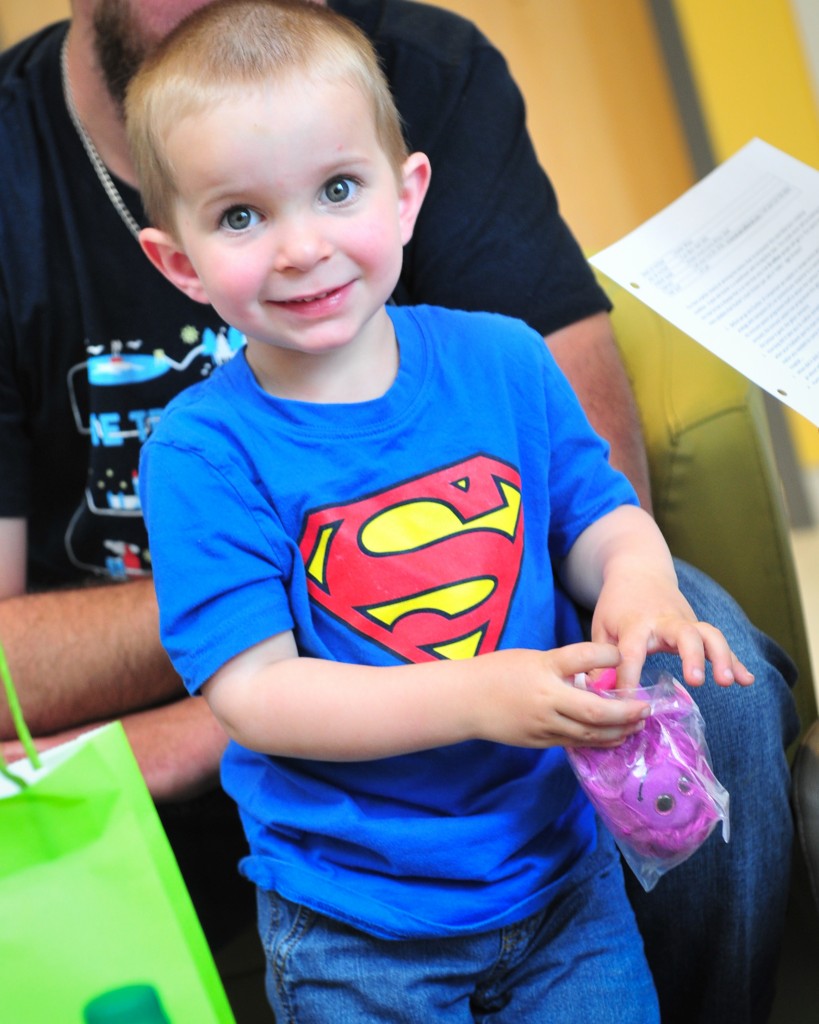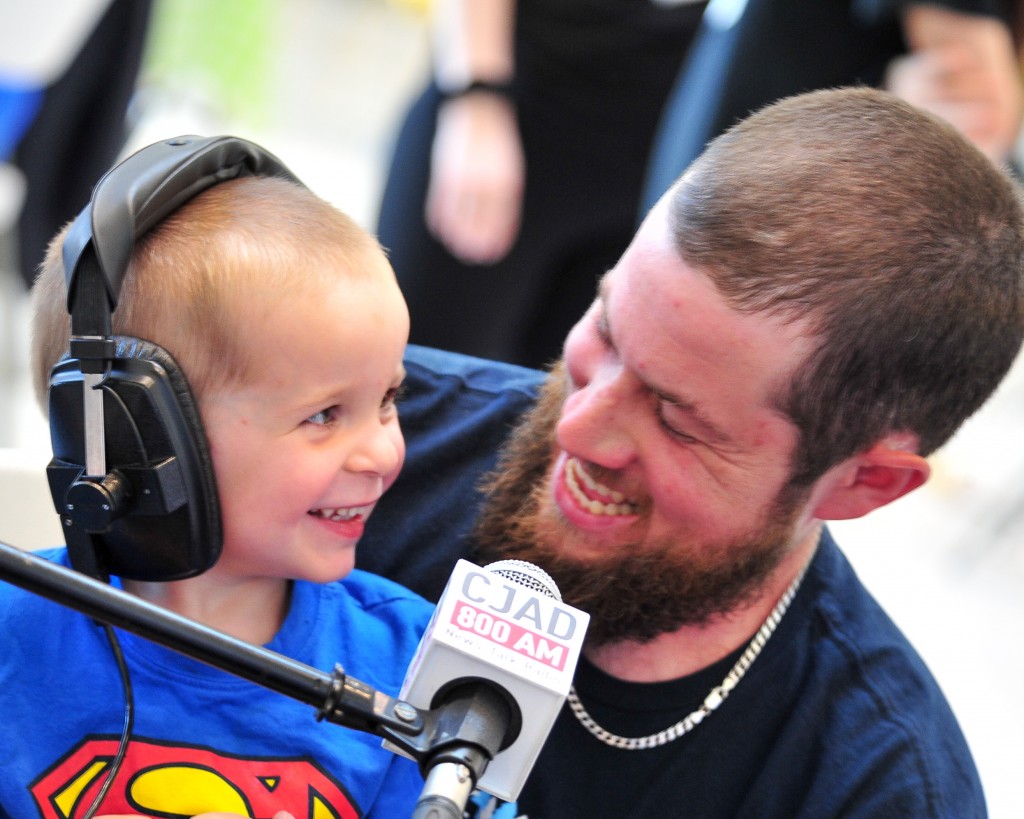You have a better chance of winning the lottery than encountering Hunter's medical condition
Wednesday, July 19, 2017
Most people remember their Boxing Day for the deals they got. For my family, Boxing Day 2015 was the beginning of a long and scary ordeal. That day, my husband saw our toddler’s eyes shake in a weird way, from left to right very rapidly, like REM movements, but while he was awake. He caught it 2-3 times. A few days later, Hunter fell and hit his head. He seemed okay so we didn’t go see a doctor.
But on Dec. 31, we noticed Hunter’s shaking again more often. I wanted to go to the local hospital but my husband insisted we go to the Children’s so we drove from the Eastern Townships all the way to Montreal.
They took a CT scan and ruled out any concussion. But a resident in neurology was quite persistent. He would ask us questions, get on the phone and come back to us with more questions. This lasted for two hours.
At first, I thought we were getting all this attention because the ER was dead: “Maybe they’re bored and taking the time to look at everything”. But then the resident said “Hunter's symptoms are worrying” and asked us to stay the night. Obviously, we didn’t sleep! We were on the 9th floor, watching the snow twinkle, clueless as to why we were there.

The next day was overwhelming
Dr. Bernard Rosenblatt came in the next day and scanned Hunter’s whole body. He already suspected a condition that affects 1 person in 10 million: Opsoclonus Myoclonus Syndrome (called OMS). In Hunter’s case, it’s an auto-immune response to a tumor, a neuroblastoma. It’s like his immune system programed itself to attack the tumour. They found the tumor on the adrenal gland.
Two days later, our worst fears were confirmed: it was a cancerous tumour.
They brought in a Child Life specialist to play with Hunter and led us into a room where there were a dozen staff members. They each introduced themselves. Hearing words like neurology, hematology, surgery was overwhelming. Thankfully, we felt a lot of empathy while the experts explained us the situation and took breaks to ask if we had questions.
From then on, within 7 days, Hunter’s eye shook continuously, he lost his balance, he had tremors, and a hard time sitting up. It was like our child had regressed within a week’s time and it felt very scary.
The good news is that the neuroblastoma was caught early even though the tumor was the size of a golf ball which, in the body of a 15-month-old, is still quite big. Our surgeon, Dr. Sherif Emil, told us he was confident he could remove all of it and that made us feel good.
But now that the tumour has been removed, the immune system has programed itself to attack his brain. It can affect his sleep, his speech, his motor skills. Sometimes Hunter will have bouts of rage. A cold or chicken pox can trigger the symptoms so we try not to be around sick people.

A toll on our family and our relationship
Every 3 weeks, it’s like my life is on hold for 48 hours. I go to the Children’s where Hunter receives his treatment: an IVIG, a blood product. The whole family has become active blood donors! My older daughter, who is 5 years old, doesn’t understand why Hunter gets to be with his mommy alone for long periods and she doesn't.
It has also had a big impact on our mental health. From January, when they removed the tumour, until April, my husband and I were living day to day, we knew what the routine was, we were “operative”. But then in May of last year, we crashed.
It’s easy to become obsessive and overwhelmed: Hunter cannot go to daycare, he can’t be in any social outing. We try to have friends with young kids come by the house when they are not showing any symptoms of a cold.
Thanks to your donations, the Children’s offered us the support of Social services and helped us find help close to our home. Because it’s such a rare condition, there isn’t a lot of research and the protocols from one country to another vary a lot. But the medical team has been very open to looking at what’s being done elsewhere. We are lucky to have a hospital where such expertise and empathy coexist.
We are grateful to count on donors to support us through this ordeal.